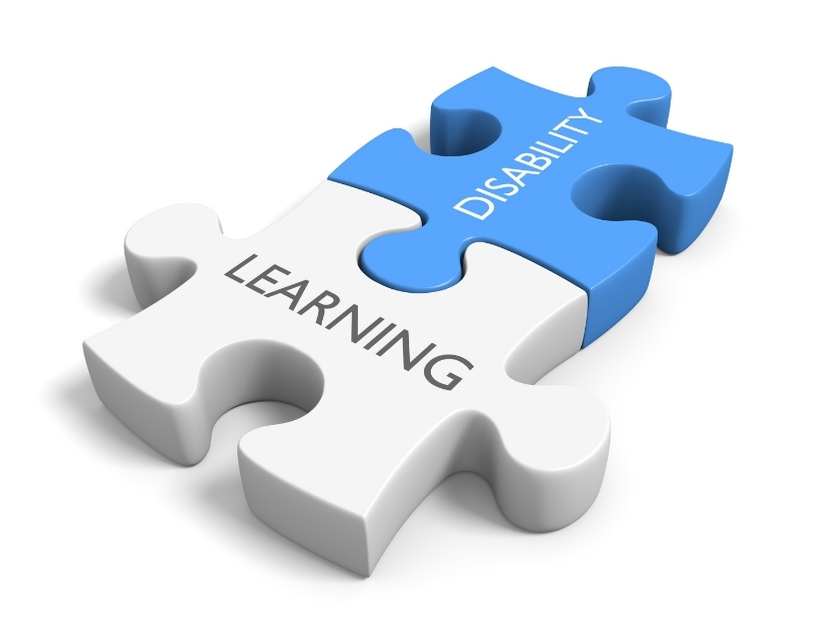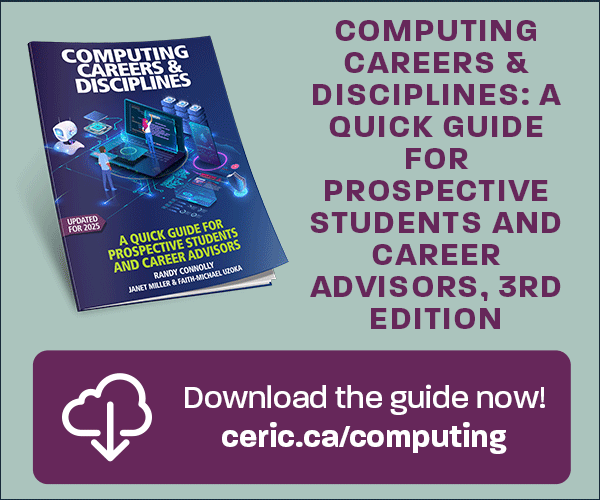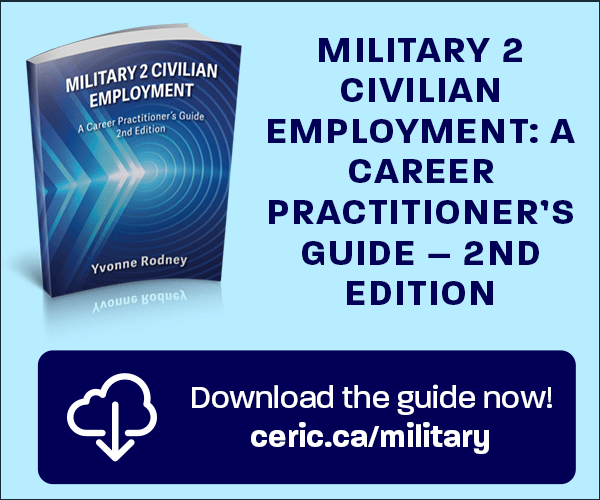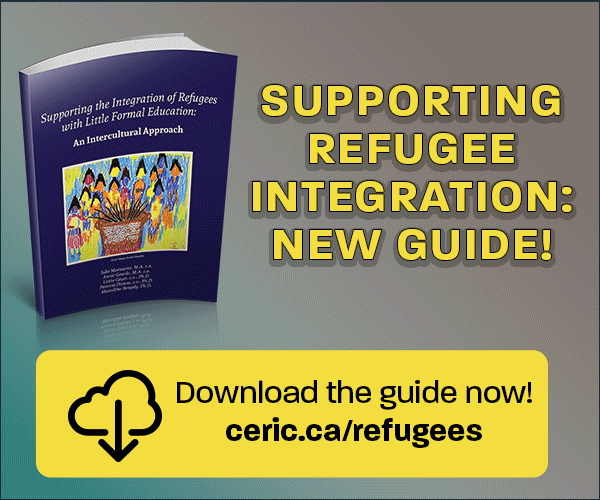Employment Outcomes of Canadian Postsecondary Students with Learning Disabilities
Keywords:
postsecondary, learning disabilities, canadian students, employment outcomesAbstract
The employment outcomes of 35 Canadian postsecondary graduates with learning disabilities (LD) were investigated. It was found that 67.7% of respondents were working full-time, earning salaries comparable to those in the general population of college graduates without LD. While 56.9% of respondents indicated that their work was affected by LD, only 47.1% had ever disclosed their LD in the workplace or requested formal workplace accommodations (11.8%). Most respondents reported employing the use of compensatory strategies in order to overcome obstacles presented by their LD.
High ratings of job satisfaction and high perceptions of employment selfefficacy were reported. Implications of the findings in terms of successful individuals with LD and effective transition planning are discussed, as well as limitations and directions for future research.
References
Adelman, P. B. & Vogel, S. A. (1990). College graduates with learning disabilities – Employment attainment and career patterns. Learning Disability Quarterly, 13(3), 154 – 166. doi: 10.2307/1510698
American Psychiatric Association. (2013). Diagnostic and statistical manual of mental disorders (5th ed.). Washington, DC: Author.
Bandura, A. (1986). Social foundations of thought and action: A social cognitive Employment Outcomes of Students with Learning Disabilities24 theory. Englewood Cliffs, NJ: Prentice-Hall.
Bizier, C., Till, M., & Nicholls, G. (2015). Learning disabilities among Canadians aged 15 years and older, 2012. Canadian Survey on Disability, 2012. Statistics Canada Catalogue no. 89-654-X2014003. Ottawa, Ontario. Retrieved from http://www.statcan.gc.ca/pub/89-654-x/89-654-x2014003-eng.htm (accessed May 26, 2017).
Cummings, R., Maddux, C. D., & Casey, J. (2000). Individualized transition planning for students with learning disabilities. The Career Development Quarterly,49(1), 60 – 72. doi: 10.1002/j.2161-0045.2000.tb00751.x
Gerber, P. J., Ginsberg, R., & Reiff, H. B. (1992). Identifying alterable patterns in employment success for highly successful adults with learning disabilities. Journal of Learning Disabilities, 25(8), 475 – 487. doi: 10.1177/002221949202500802
Gerber, P. J., Price, L. A., Mulligan, R., & Shessel, I. (2004). Beyond transition: A comparison of the employment experiences of American and Canadian adults with LD. Journal of Learning Disabilities, 37(4), 283 – 291. doi:10.1177/00222194040370040101
Greenbaum, B., Graham, S., & Scales, W. (1996). Adults with learning disabilities: Occupational and social status after college. Journal of Learning Disabilities, 29(2), 167 – 173. doi: 10.1177/002221949602900206
Holliday, G. A., Koller, J. R., & Thomas, C. D. (1999). Post-high school outcomes of high IQ adults with learning disabilities. Journal for the Education of the Gifted, 22(3), 266-281. doi: 10.1177/016235329902200303
Holmes, A., & Silvestri, R. (2011). Employment experience of Ontario’s postsecondary graduates with learning disabilities. Toronto: Higher Education Quality Council of Ontario. Retrieved from http://www.heqco.ca/SiteCollectionDocuments/LD_ENG.pdf
Kongsved, S. M., Basnov, M., Holm-Christensen, K., & Hjollund, N. H. (2007). Response rate and completeness of questionnaires: a randomized study of Internet versus paper-and-pencil versions. Journal of Medical Internet Research, 9(3). doi: 10.2196/jmir.9.3.e25
Learning Disabilities Association of Canada. (2015). Official definition of learning disabilities. Retrieved from http://ldac-acta.ca/learn-more/ld-defined/official-definition-of-learning-disabilities
Levine, P. & Nourse, S. W. (1998). What follow-up studies say about postschool life for young men and women with learning disabilities: A critical look at the literature. Journal of Learning Disabilities, 31(3), 212 – 233. doi:10.1177/00222194980310 0302
Madaus, J. W. (2006). Employment outcomes of university graduates with learning disabilities. Learning Disability Quarterly, 29(1), 19 – 31. doi: 10.2307/30035529Madaus, J. W. (2008). Employment self-disclosure rates and rationales of university graduates with learning disabilities. Journal of Learning Disabilities, 41(4), 291 – 299. doi: 10.1177/0022219407313805
Madaus, J. W., Foley, T. E., McGuire, J. M., & Ruban, L. M. (2001). A follow-up investigation of university graduates with learning disabilities. Career Development for Exceptional Individuals, 24(2), 133 – 146.
Madaus, J. W., Foley, T. E., McGuire, J. M., & Ruban L. M. (2002). Employment self-disclosure of postsecondary graduates with learning disabilities: Rate and rationales. Journal of Learning Disabilities, 35, 364 – 369.
Madaus, J. W., Ruban L. M., Foley, T. E., & McGuire, J. M. (2003). Attributes contributing to the employment satisfaction of university graduates with learning disabilities. Learning Disability Quarterly, 26(3), 159 – 169. doi: 10.1177/088572880102400204
Madaus, J. W., Zhao, J., & Ruban, L. (2008). Employment satisfaction of university graduates with learning disabilities. Remedial and Special Education, 29(6), 323 – 332. doi: 10.1177/0741932507312012
McLaughlin, M.J., Speirs, K.E., & Shenassa, E.D. (2014). Reading disability and adult attained education and income: Evidence from a 30-year longitudinal study of a population-based sample. Journal of Learning Disabilities, 47, 374 – 386. doi:10.1177/0022219412458323
Murray, C., Goldstein, D. E., Nourse, S., & Edgar, E. (2000). The postsecondary school attendance and completion rates of high school graduates with learning disabilities. Learning Disabilities Research & Employment Outcomes of Students with Learning Disabilities 25Practice, 15(3), 119 – 127. doi: 10.1207/SLDRP1503_1
Newman, L., Wagner, M., Knokey, A. M., Marder, C., Nagle, K., Shaver, D., & Wei, X. (2011). The post-high school outcomes of young adults with disabilities up to 8 years after high school: A report from the National Longitudinal Transition Study-2 (NLTS2). NCSER 2011-3005. Menlo Park, CA: SRI International.
Panagos, R. J. & DuBois, D. L. (1999). Career self-efficacy development in students with learning disabilities. Learning Disabilities Research & Practice, 14(1), 25 – 34. doi: 0.1207/sldrp1401_3
Price, L., Gerber, P., & Shessel, I. (2002). Adults with learning disabilities and employment: A Canadian perspective. Thalamus: The Journal of the International Academy for Research in Learning Disabilities, 20, 29-40.
Sanford, C., Newman, L., Wagner, M., Cameto, R., Knokey, A. M., & Shaver, D. (2011). The post-high school outcomes of young adults with disabilities up to 6 years after high school: Key findings from the National Longitudinal Transition Study-2 (NLTS2). NCSER 2011-3004. Menlo Park, CA: SRI International.
Seo, Y., Abbott, R.D., & Hawkins, J.D. (2008). Outcome status of students with learning disabilities at ages 21 and 24. Journal of Learning Disabilities, 41(4), 300-314. doi: 10.1177/0022219407311308
Shessel, I. & Reiff, H. B. (1999). Experiences of adults with learning disabilities: Positive and negative impacts and outcomes. Learning Disability Quarterly, 22(4), 305 – 316. doi: 10.2307/1511264
Statistics Canada. (2006). Total Income Groups (23) in Constant (2005) Dollars, Age Groups (7A), Highest Certificate, Diploma or Degree (5) and Sex (3) for the Population 15 Years and Over of Canada, Provinces, Territories, Census Metropolitan Areas and Census Agglomerations, 2000 and 2005 - 20% Sample Data. Retrieved March 21, 2013 from http://www12.statcan.gc.ca/census-recensement/2006/dp-pd/tbt/Rp-eng.cfm?TABID=1&LANG=E&APATH=3&DETAIL=0DIM=0&FL=A&FREE=0&GC=0&GK=0&GRP=1&PID=94188&PRID==0&PTYPE=88971,97154&S=0&SHOWALL=0&SUB=0&Temporal=2006&tHEME=81&VID=0&VNAMEE=&VNAMEF=
Truell, A. D., Bartlett II, J. E., & Alexander, M. W. (2002). Response rate, speed, and completeness: A comparison of Internet-based mail surveys. Behavior Research Methods, Instruments, & Computers, 34(1), 46 – 49. doi: 10.3758/BF03195422
Witte, R. H., Philips, L., & Kakela, M. (1998). Job satisfaction of college graduates with learning disabilities. Journal of Learning Disabilities, 31(3), 259 – 265. doi: 10.1177/002221949803100305Employment Outcomes26

Downloads
Published
How to Cite
Issue
Section
License

This work is licensed under a Creative Commons Attribution-NonCommercial-NoDerivatives 4.0 International License.
















